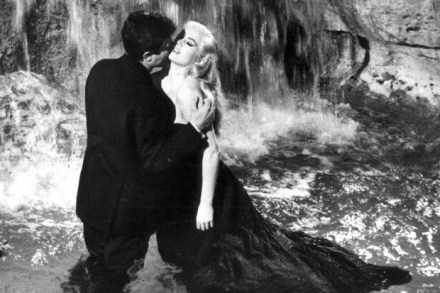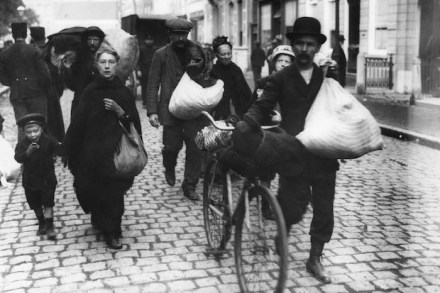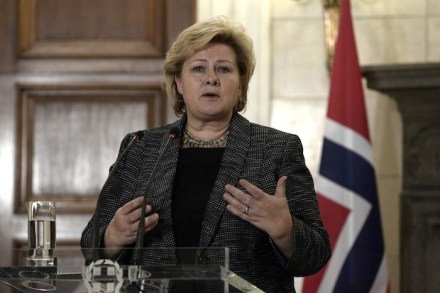The Spectator reviews La Dolce Vita, December 1960
It’s hard when a legend turns up to be judged: hard to judge it, hard on the legend. Everything suffers, maybe judgment most of all. How can we help being influenced— or at least forewarned to a critically unhealthy extent—by the national hysteria Fellini’s La Dolce Vita (‘X’ certificate) aroused in Italy early this year? Everything and everyone was involved and invoked in dealing with it, in feeling for it (I can’t say in judging it, because judgment of the film as a fiim—our old friend right-thinking film criticism again—was pretty nearly impossible when everyone was busy attacking or defending it as a social document, a political manifesto, a sock in



















